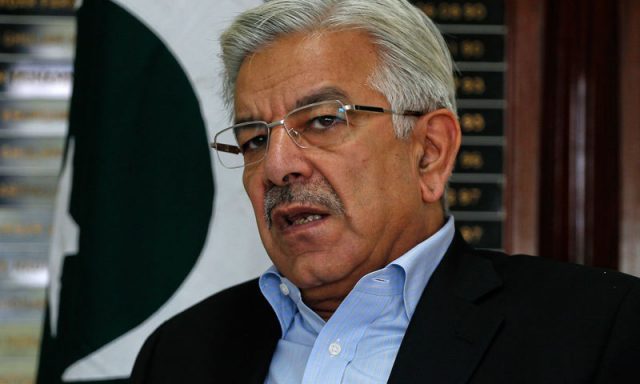Zafar Nawaz Jaspal |
Pakistan’s reluctance to comply with the United States misdirected directives in Afghanistan enraged the Trump administration. It is accusing, maligning and above all intimidating Pakistan at the international forums. Recently, it tabled resolution against Pakistan at the Financial Action Task Force (FATF) meeting in Paris. Indeed, such coercing tactics obstruct the efforts for peace and stability in Afghanistan. And also undermine Pakistan’s ongoing operations against the transnational terrorist organizations.
The National Unity Government has gradually been losing its control in Afghanistan. The weakening writ of the Kabul in the country is in the advantage of both Afghan Taliban and Daesh (IS). The increasing influence of Afghan Taliban is against the interest of the United States. It exposes Americans failure in the country. Therefore, it has been scapegoating Pakistan.
Pakistani armed forces have successfully eliminated terrorist sanctuaries. Whereas, Tehreek-e-Taliban has sanctuaries in Afghanistan, from where it is coordinating attacks against Pakistan. Hence, it’s the responsibility of the United States, NATO and Afghanistan to destroy these sanctuaries.
Instead of succumbing to the Americans demands, the Pakistani officials asked the American counterparts to stop blaming them for their failure in Afghanistan. Speaking at the 54th Munich Security Conference in Germany, Pakistan Army chief General Qamar Bajwa reiterated Pakistan’s resolve to erase completely the transnational terrorist organizations sanctuaries. He apprised the audience about the heroic sacrifices of the Pakistanis in defeating al-Qaeda, Tehreek-e-Taliban and other outlawed militant groups.
He stated: “Instead of blame game it is time for the NATO to conduct and audit and introspection to find out the causes of this stalemate” in Afghanistan. The regrouping of Daesh in the country alarms all the neighbors of Afghanistan. Consequently, Russia, China and Pakistan are deliberating to combat the emerging threat of Daesh collectively in their neighborhood. They have started trilateral dialogue process. On April 14, 2017, Russians had also convened a 12 nations meeting for the restoration of peace in Afghanistan, in Moscow.
Read more: Pugnacious Trump’s problems with Pakistan
The primary focus of the meeting was to prevent Daesh from spreading its tentacles in the war-torn Afghanistan. On February 20, 2018, Russian Foreign Minister Sergei Lavrov stated in a press conference with his Pakistani counterpart Khawaja Asif, “We have confirmed Russia’s readiness to continue boosting Pakistan’s counterterrorism capacity, which is in the entire region’s interests.” Precisely, the Russians and Pakistanis have convergence of interest in denying space to Daesh in Afghanistan.
Increasing role of China and Russia in Afghanistan affairs seems unacceptable to the United States. The United States considers China and Russia its strategic peers and Afghanistan as a heartland of Eurasia. The United States ‘National Security Strategy 2017’ document declassified on December 18, 2017 revealed that: “China and Russia challenge American power, influence, and interests, attempting to erode American security and prosperity.”
The misuse of the concept of Jihad, the international community has to act proactively for the protection Kashmiris, Palestinians, Rohingyas, Azeri’s, etc. Otherwise, the narrative of the extremist militants groups continue misguiding the innocent Muslims world over.
Presently, Pakistan is a strategic partner of China. On February 20, 2018, Islamabad and Moscow also agreed to form a commission for military cooperation. Perhaps, Islamabad’s increasing cooperation with Beijing and Moscow generates skepticism in Washington. New Delhi always scapegoats Islamabad for its failure in the Indian Occupied Kashmir. Since mid 1980s, New Delhi has been struggling to establish its authority in the valley.
However, the Kashmiri freedom fighters have made the Indian civil law enforcement agencies as well as Army dysfunctional in the area. Instead of assessing the ground realities, the Americans are echoing Indians unsubstantiated allegations leveled against Pakistan. In fact, the Indians are trying to camouflage Kashmiris legitimate freedom movement with the propaganda of Jihad, etc. The international community has adopted an apathetic attitude towards the annihilation of Kashmiris, Palestinians, Rohingyas, Azeri’s, etc.
Read more: US continuous drift towards India raises new risks for Pakistan
The suffering of innocent Muslims obliges international community to protect them from brutal state terrorism. Unfortunately, the international community response is not encouraging. The indifferent behavior of the international community creates space for the radicalized militants to exploit the grievances of innocent victims for their own heinous agenda.
The United States ‘National Security Strategy 2017’ document declassified on December 18, 2017 revealed that: “China and Russia challenge American power, influence, and interests, attempting to erode American security and prosperity.”
On February 17, 2018, General Bajwa in his introductory speech on ‘Jihadism after Caliphate’ at Munich Security Conference pointed out that: “there is no denying of the fact that a powerful concept such as Jihad can be easily misused for propagating extremism and terrorism, particularly as many Muslims world over are not only feeling alienated, but disowned, targeted and devoid of positive expression.” Hence, for preventing the misuse of the concept of Jihad, the international community has to act proactively for the protection Kashmiris, Palestinians, Rohingyas, Azeri’s, etc. Otherwise, the narrative of the extremist militants groups continue misguiding the innocent Muslims world over.
To conclude, Islamabad does not sponsor, nurture and use terrorist groups against any country. Pakistani armed forces have successfully eliminated terrorist sanctuaries. Whereas, Tehreek-e-Taliban has sanctuaries in Afghanistan, from where it is coordinating attacks against Pakistan. Hence, it’s the responsibility of the United States, NATO and Afghanistan to destroy these sanctuaries.
Dr. Zafar Nawaz Jaspal is Associate Professor, School of Politics and International Relations, Quaid-i-Azam University, Islamabad. He is also an advisor on Non-Proliferation to SASSI, London and a course coordinator at Foreign Services Academy for the Pakistan Ministry of Foreign Affairs. Email: jaspal_99@hotmail.com. This piece was first published in Pakistan Observer. It has been reprinted with permission. The views expressed in this article are the author’s own and do not necessarily reflect Global Village Space’s editorial policy.














